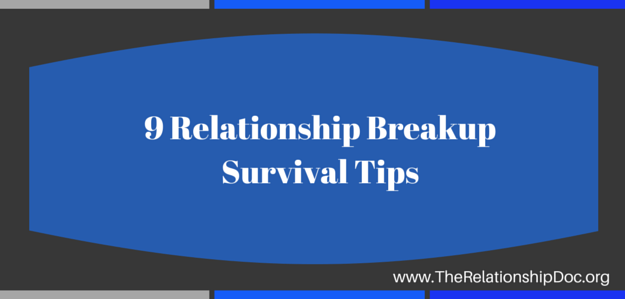 So you just broke up, feel devastated and distraught over your loss, and are not sure what to do. Friends and family try to help by encouraging you to “move on, it’s over.” Their unspoken message is often to “quit thinking and talking about it,” and start moving forward with your life.
So you just broke up, feel devastated and distraught over your loss, and are not sure what to do. Friends and family try to help by encouraging you to “move on, it’s over.” Their unspoken message is often to “quit thinking and talking about it,” and start moving forward with your life.
Your friends and family, of course, are well-meaning, but, according to researchers from the psychology department at Northwestern University, you should be talking about the breakup, and talking about it a lot! In fact, the more thoroughly you detail the events to others, the more it boosts your well-being and facilitates a more rapid recovery.
In the Northwestern study, one control group of newly singles met only for a periodic check-in, filling out a survey at the beginning and the end of the nine-week assessment. A second group, also comprised of people struggling to recover from a breakup, underwent much more extensive testing and an interview process. They were encouraged to talk about every aspect of their relationship, from where things started going wrong, to what they learned about themselves going forward. The group participants who were more interactive and communicative about their relationship breakup recovered at a much quicker rate and moved on sooner with their independent lives.
One of the biggest challenges after a breakup is discovering, or rediscovering, your self-identity. When you’re in a relationship, your self-identity is intertwined with your connection to your partner. When single, it is not the same as who you are when you’re part of a couple. The process of reclaiming your old identity, or a whole new self, requires changing your thought patterns from an “us” to “me” way of thinking.
Processing the feelings around a breakup helps us more quickly discover who we’ve become, how we’ve grown, and what we’ve learned from the experience of this past relationship. The knowledge we accumulate helps us mature and improves our relationships in the future.
Following these survival tips can help ease the transition from “we” to “me”:
1. In addition to focusing on basic self-care (healthy eating and sleeping schedule), don’t forget to reach out for the support you need–and don’t stop discussing the events before, during, and after the breakup!
2. Expect older losses to come up for you during this grieving period. This most recent relationship loss will likely stir up any past losses, when you also felt sad and lonely.
3. Avoid self-medicating with alcohol or drugs, as this only puts off dealing with the inevitable source of your pain and delays healing.
4. Avoid the rebound trap. Quickly jumping into another relationship is yet another common way some people distract themselves from the pain of a breakup.
5. As mentioned above, refrain from identifying yourself using “couple-speak” (words such as “we” or “us”) when describing or thinking about your breakup. Research suggests that recovery happens faster for those who refer to themselves in first-person singular.
6. Expand your focus on self-care by renewing old interests and hobbies, or engaging in new ones. Perhaps it’s time to travel. Consider places you wanted to go, or things you wanted to do that your ex-partner wasn’t excited about. Your choices are now totally in your control; now is the time to follow through on engaging in those activities or interests you’ve always put off.
7. Begin or increase an exercise or activity regimen. Physical movement is important for overall health and wellbeing and provides mood-boosting mental health benefits.
8. Once you are stable and have a good self-care regimen established, focus outwardly by helping others. There are ample volunteer opportunities for worthy causes. Volunteering has been repeatedly shown to increase feel-good endorphins and provide a sense of purpose, as well as another avenue for meeting new people.
9. Utilize social support organizations to work through your feelings or connect with understanding friends. There are a variety of relationship breakup support groups that you can join.
If you’re still having a hard time recovering from your relationship breakup after trying the above steps, don’t hesitate to seek supportive counseling to assist in processing your feelings of loss and truly begin moving forward with your life.